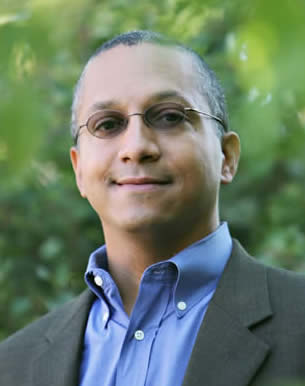David Pellow to speak on “Radical Politics, State Repression, and the Problem of ‘Eco-Terrorism’”
 Pellow's interests include environmental justice studies, racial and ethnic inequality, transnational social movements, and labor studies.
Pellow's interests include environmental justice studies, racial and ethnic inequality, transnational social movements, and labor studies.
Thursday, October 16, 2014 04:31 PM
Professor David Pellow, the Don Martindale Endowed Chair of Sociology at University of Minnesota, will deliver a talk, “Radical Politics, State Repression, and the Problem of ‘Eco-Terrorism,’"on Monday, October 20, 2014 at 7:30 p.m. in Miller Forum, Moyer Hall. This event, sponsored by the Center for Ethics, is free and open to the public.
Pellow's interests include environmental justice studies, racial and ethnic inequality, transnational social movements, and labor studies. He is the author of the forthcoming book Total Liberation: The Power and Promise and Animal Rights and the Radical Earth Movement.
To what extent are radical environmental and animal liberation movements also struggles over social inequality? In other words, to what degree are these movements that are typically seen as primarily focused on defending nonhuman animals and ecosystems also confronting oppression within human communities? What are the implications of the ‘eco-terrorist’ label that states, corporations, and media impose on these groups? Pellow will consider these questions in relation to broader historical patterns of social movement struggles against oppression and the phenomenon of state repression directed at dissident groups. He will conclude with a discussion of the productive links between radical earth and animal liberation movements and environmental justice movements.
This event is part of the year-long Center for Ethics series, Civility and Disobedience, under the direction of Brian Mello, associate professor of political science, and Christine Sistare, professor of philosophy.
Each year, the Center for Ethics sponsors an intensive series designed to encourage discussion and reflection on a timely, pertinent topic. Center for Ethics programs are free and open to all members of the Muhlenberg campus and the local community.
